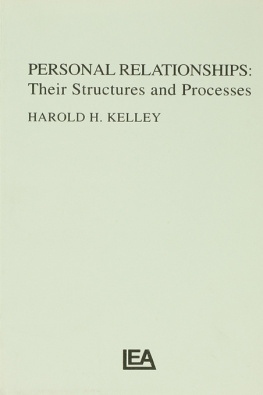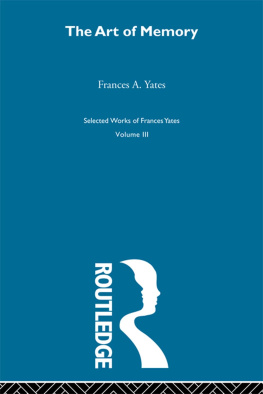
Library of Arabic Linguistics
The reasons behind the establishment of this Series on Arabic linguistics are manifold.
First: Arabic linguistics is developing into an increasingly interesting and important subject within the broad field of modern linguistic studies. The subject is now fully recognised in the Universities of the Arabic speaking world and in international linguistic circles, as a subject of great theoretical and descriptive interest and importance.
Second: Arabic linguistics is reaching a mature stage in its development benefiting both from early Arabic linguistic scholarship and modern techniques of general linguistics and related disciplines.
Third: The scope of this discipline is wide and varied, covering diverse areas such as Arabic phonetics, phonology and grammar, Arabic psycho- linguistics, Arabic dialectology, Arabic lexicography and lexicology, Arabic sociolinguistics, the teaching and learning of Arabic as a first, second, or foreign language, communications, semiotics, terminology, translation, machine translation, Arabic computational linguistics, history of Arabic linguistics, etc.
Viewed against this background, Arabic linguists may be defined as: the scientific investigation and study of the Arabic language in all its aspects. This embraces the descriptive, comparative and historical aspects of the language. It also concerns itself with the classical form as well as the Modern and contemporary standard forms and their dialects. Moreover, it attempts to study the language in the appropriate regional, social and cultural settings.
It is hoped that the Series will devote itself to all issues of Arabic linguistics in all its manifestations on both the theoretical and applied levels. The results of these studies will also be of use in the field of linguistics in general, as well as related subjects.
Although a number of works have appeared independently or within series, yet there is no platform designed specifically for this subject. This Series is being started to fill this gap in the linguistic field. It will be devoted to Monographs written in either English or Arabic, or both, for the benefit of wider circles of readership.
All these reasons justify the establishment of a new forum which is devoted to all areas of Arabic linguistic studies. It is also hoped that this Series will be of interest not only to students and researchers in Arabic linguistics but also to students and scholars of other disciplines who are looking for information of theoretical, practical or pragmatic interest.
The Series Editor
North east Arabian dialects
Library of Arabic Linguistics
Series editor
Muhammad Hasan Bakalla
University of Riyadh, Kingdom of Saudi Arabia
Advisory editorial board
Peter F. Abboud University of Texas at Austin
M. H. Abdulaziz University of Nairobi
Yousif El-Khalifa Abu Bakr University of Khartoum
Salih J. Altoma Indiana University
Arne Ambros University of Vienna
El Said M. Badawi American University in Cairo
Michael G. Carter University of Sydney
Ahmad al-Dhubaib University of Riyadh
Martin Forstner Johannes Gutenberg University at Mainz
Bruce Ingham University of London
Otto Jastrow University of Erlangen-Nurnberg
Raja T. Nasr University College of Beirut
C. H. M. Versteegh Catholic University at Nijmegen
Boguslaw R. Zagorski University of Warsaw
Bruce Ingham
University of London
North east Arabian dialects
Monograph No. 3
First published in 1982 by
Kegan Paul International
Published 2014 by Routledge
2 Park Square, Milton Park, Abingdon, Oxon OX14 4RN
Simultaneously published in the USA and Canada
by Routledge
711 Third Avenue, New York, NY, 10017, USA
Routledge is an imprint of the Taylor & Francis Group, an informa business
Bruce Ingham 1982
All rights reserved. No part of this book may be reprinted or reproduced or utilised in any form or by any electronic, mechanical, or other means, now known or hereafter invented, including photocopying and recording, or in any information storage or retrieval system, without permission in writing from the publishers.
British Library Cataloguing in Publication Data
A catalogue record for this book is availablefrom the British Library
ISBN 13: 978-0-710-30018-8 (hbk)
Publishers Note
The publisher has gone to great lengths to ensure the quality of this reprint but points out that some impetfections in the original copies may be apparent. The publisher has made every effort to contact original copyright holders and would welcome correspondence from those they have been unable to trace.
To Musaid ibn Saif al-Saif
Editors note
Arabic dialectology is an important branch of Arabic linguistics. The interest in Arabic dialects is not a new phenomenon, in fact it goes back to the early stages of Arabic studies. This interest, though limited in scope and confined to certain geographical regions, did not concentrate on the dialects per se. It, however, served as a means of definition and clarification of Classical Arabic as described by the early Arab and Muslim grammarians. Many statements on dialectal variations covering many linguistic levels of the Arabic language were reported in works dealing not only with Arabic grammar and philology but also with the sciences of Tajwid and rhetoric, in addition to biographical dictionaries among others. For instance, traditional discussion of vocalic variations such as imala and consonantal changes covers some important areas of Arabic phonology. Variations in the morphological syntactic and semantic properties of Arabic were discussed by early Arab and Muslim grammarians and philologists or linguists. Therefore there is a rich mine of information in early Arab works which may be considered one of the main sources in Arabic dialectology.
The modern interest in Arabic dialectology started seriously around the middle of the 19th century, partly as a result of the general tendency to study modern societies anthropologically as well as linguistically. Since then scores of Arabic dialects have been investigated. The Arabian Peninsula received the least attention amongst the dialects studied.
Again very little has been written on North East Arabian dialects. The present volume attempts to fill this gap in Arabic dialectology. It is the result of several years field work in the region under investigation. Geographically speaking, the area covered includes the East Arabian region of al-Hasa and Kuwait, the northern parts of the Kingdom of Saudi Arabia, southern Iraq and Arabistan or Khuzistan. The present work, as is made clear here, is not a full description of any one dialect studied. It rather pinpoints the differences between the dialects of the region.
There are two characteristics upon which this work is based. Firstly it is an areal linguistic study in which the distributions of the dialectal features is made and shown on the linguistic maps provided. Looked at from another angle, this study provides an excellent typological analysis of the dialects in the region under discussion.








